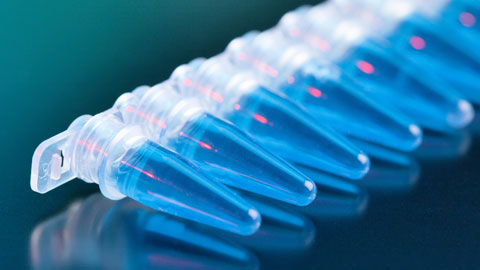UAB and Devicare work to offer treatments for rare diseases

As part of the DIGITAL project, the two centres will develop a biosensor to monitor daily and from home ammonia levels in patients with urea cycle disorders.
The Sensors and Biosensors Group of the Department of Chemistry of the Universitat Autònoma de Barcelona (UAB), led by Dr Julián Alonso, signed a collaboration agreement with the company Devicare, located at the UAB Research Park, to develop a biosensor which can monitor the level of ammonium in patients with Urea Cycle Disorders (UCD), a set of genetic disorders causing problems in the elimination of toxins through urine.
UCDs are caused by a qualitative or quantitative anomaly in one of the six enzymes involved in urine synthesis, producing an accumulation of ammonia in the organism which can cause severe damage to the nervous system. Considered a rare disease, scientific studies state that it affects one on every 25,000-50,000 newborns, although this estimate may be a bit low, given that many of these patients die before being diagnosed.
“An early diagnosis, adequate monitoring and effective treatments are of vital importance in preventing infant death and neurological disorders associated with these types of diseases”, explains Giuseppe Giovinazzo, coordinator of the project between the UAB and Devicare. That is why this project aims to develop a biosensor which can control the amount of ammonium in diagnosed patients, thereby facilitating their monitoring and self-control at home, without having to visit the hospital as often, and avoiding complications which could lead to severe neurological alterations.
The UAB Sensors and Biosensors Group will be in charge of developing the sensor and the company Devicare will create a telemedicine platform for patients to be monitored. The first industrial sensor prototype will be ready by mid-2016.
The development of this biosensor forms part of the DIGITAL project, a public/private initiative created to meet the medical and social needs of improving diagnosis, monitoring and treatment in patients with genetic disorders associated to congenital metabolism errors (CME) included in neonatal screening programmes and other rare metabolic disorders.
The project aims specifically to improve current neonatal genetic diagnosis methods, develop biosensors to facilitate the monitoring of diagnosed patients and identify innovative treatments. In addition to Devicare, the companies Enzymlogic, qGenomics and Minoryx, as well as University of Barcelona and Pompeu Fabra University, will participate in this three-year project.
This R&D&I initiative includes the support of the Spanish Ministry for Economics and Competitiveness, which has financed the project with 1.1 million euros through the 2014 Retos-Colaboración programme.

